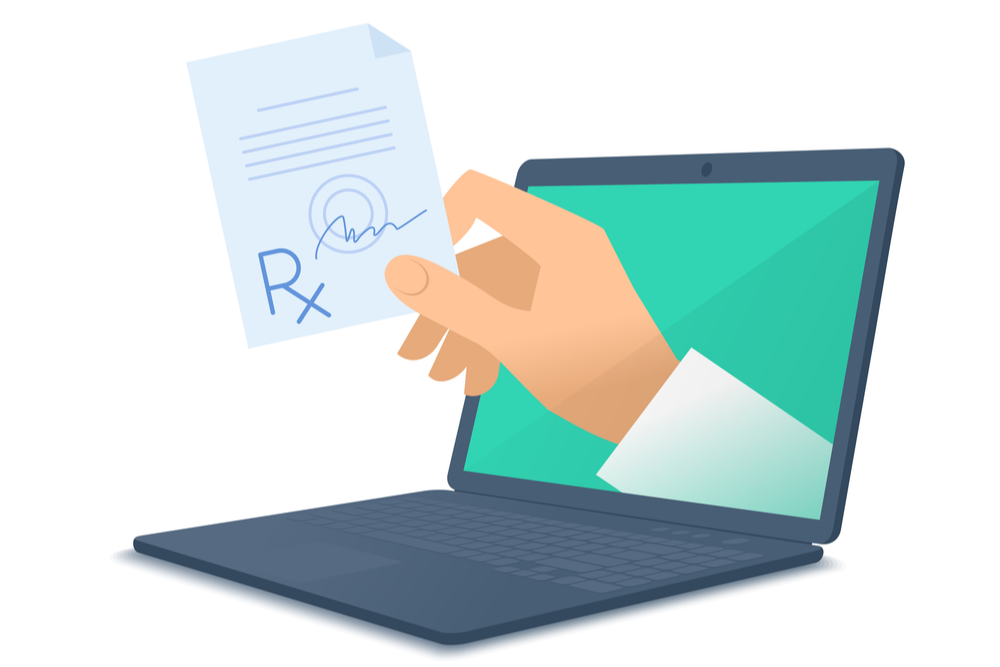Understanding Anxiety: Symptoms, Treatments, and Medications
By: Dr. Nima Mehran | MD
Anxiety disorders are among the most prevalent mental health conditions globally, affecting millions of individuals across various age groups. Characterized by persistent and excessive worry, fear, or nervousness, anxiety can significantly interfere with daily activities and overall well-being. This comprehensive guide delves into the symptoms of anxiety disorders, explores popular medications used in treatment, and discusses effective strategies for managing anxiety. SaveHealth has anxiety prescription coupons and discounts and you can edit the location to see savings at pharmacies near you.
What Is Anxiety?
Anxiety is a natural response to stress, often manifesting as a feeling of apprehension or fear about future events. While occasional anxiety is a normal part of life, anxiety disorders involve more than temporary worry or fear. For individuals with an anxiety disorder, the anxiety does not go away and can worsen over time, affecting daily activities such as job performance, schoolwork, and relationships.
Common Types of Anxiety Disorders
Generalized Anxiety Disorder (GAD): Characterized by chronic and excessive worry about various aspects of daily life, such as health, work, or social interactions.
Panic Disorder: Involves recurrent and unexpected panic attacks—sudden periods of intense fear that may include palpitations, sweating, and feelings of impending doom.
Social Anxiety Disorder: Marked by intense fear of social situations where one may be judged, leading to avoidance of such scenarios.
Specific Phobias: Involve intense fear of specific objects or situations, such as heights, flying, or animals.
Agoraphobia: The fear of being in situations where escape might be difficult, often leading to avoidance of public places.
Separation Anxiety Disorder: Excessive fear or anxiety about separation from those to whom the individual is attached.
Selective Mutism: A complex childhood anxiety disorder characterized by a child's inability to speak in certain social situations.
Substance or medication-induced anxiety: Anxiety directly caused by drug use, medication, or withdrawal
Symptoms of Anxiety Disorders
Anxiety disorders can manifest through a combination of emotional, cognitive, and physical symptoms.
Emotional and Cognitive Symptoms:
Persistent worry or fear
Restlessness or feeling on edge
Difficulty concentrating
Irritability
Anticipating the worst outcomes
Physical Symptoms:
Rapid heartbeat
Sweating
Trembling or shaking
Shortness of breath
Fatigue
Headaches
Insomnia
Gastrointestinal issues
These symptoms can vary in intensity and may differ among individuals.
Causes and Risk Factors
The exact cause of anxiety disorders is unknown, but a combination of genetic, environmental, psychological, and developmental factors likely play a role.
Genetic Factors:
Family history of anxiety or other mental health disorders can increase the risk.
Brain Chemistry:
Imbalances in neurotransmitters such as serotonin, dopamine, and gamma-aminobutyric acid (GABA) are associated with anxiety disorders.
Environmental Stress:
Trauma, abuse, or significant life events can trigger anxiety disorders.
Personality Traits:
Individuals with certain personality traits, such as perfectionism or low self-esteem, may be more prone to anxiety.
Diagnosis
A thorough evaluation by a healthcare professional is essential for diagnosing anxiety disorders. This process may include:
Clinical interviews
Psychological questionnaires
Physical examinations to rule out other conditions
Early diagnosis and intervention can significantly improve outcomes.
Treatment Options
Effective treatment for anxiety disorders often involves a combination of psychotherapy, medication, and lifestyle modifications.
Psychotherapy
Cognitive Behavioral Therapy (CBT):
CBT is a widely used and effective treatment that helps individuals identify and challenge negative thought patterns and behaviors.
Exposure Therapy:
This technique involves gradual exposure to feared situations to desensitize and reduce anxiety responses.
Acceptance and Commitment Therapy (ACT):
ACT encourages individuals to accept their thoughts and feelings rather than fighting or feeling guilty for them.
Medications
Medications can help manage symptoms and are often used in conjunction with psychotherapy.
Selective Serotonin Reuptake Inhibitors (SSRIs):
Common SSRIs include:
Sertraline (brand: Zoloft)
Paroxetine (brand: Paxil)
Escitalopram (brand: Lexapro)
Fluoxetine (brand: Prozac)
SSRIs are often the first-line treatment due to their efficacy and relatively favorable side effect profile.
Serotonin-Norepinephrine Reuptake Inhibitors (SNRIs):
Examples include:
SNRIs are also effective, particularly for generalized anxiety disorder.
Benzodiazepines:
These are fast-acting medications that are typically used for short-term relief of severe anxiety symptoms. Common benzodiazepines include:
Alprazolam (brand: Xanax)
Clonazepam (brand: Klonopin)
Diazepam (brand: Valium): used for GAD, generalized anxiety disorder.
Due to the risk of dependence, they are generally prescribed for short durations.
An anti-anxiety medication that is less sedating and has a lower risk of dependence compared to benzodiazepines.
Medications like propranolol are used off-label to manage physical symptoms of anxiety, such as rapid heartbeat, particularly in performance anxiety.
Hydroxyzine:
An antihistamine with anxiolytic properties, used for short-term anxiety relief.
Lifestyle Modifications
Regular Exercise: Physical activity can reduce anxiety symptoms by releasing endorphins.
Healthy Diet: A balanced diet supports overall mental health.
Adequate Sleep: Ensuring sufficient rest is crucial for managing anxiety.
Mindfulness and Relaxation Techniques: Practices such as meditation, deep breathing, and yoga can help reduce stress.
When to Seek Help
If anxiety is interfering with your daily life, relationships, or work, it's important to seek professional help. Early intervention can lead to better outcomes and improved quality of life.
Anxiety
Anxiety disorders are common but treatable conditions. Understanding the symptoms and available treatments can empower individuals to seek help and manage their anxiety effectively. Combining psychotherapy, medication, and lifestyle changes offers the best approach to overcoming anxiety and leading a fulfilling life.
References:
1. Medicalflow: medicalflow.co/blog/what-are-the-top-medications-for-anxiety/
2. Chanute: www.chanute.com/article/2631%2Csymptoms-of-common-anxiety-disorders
3. Washington Post: https://www.washingtonpost.com/wellness/2025/07/02/ssri-heat-intolerance/
4. Health Cleveland Clinic: health.clevelandclinic.org/signs-of-anxiety
5. Web Medicinia: webmedicina.org/anxiety/guide/symptoms/
6. Vogue: www.vogue.com/article/best-products-for-thinning-hair
7. Time: time.com/5047874/anxiety-disorder-symptoms/
8. Glamour: www.glamour.com/story/why-is-everyone-suddenly-using-beta-blockers-anxiety
Note: This article is intended for informational purposes only and does not substitute professional medical advice. Always consult with a qualified healthcare provider for diagnosis and treatment options.

Related Articles

The Acne Medication Playbook: From Drugstore Staples to the Nuclear Option Doctors Save for Last
Acne is not just a teenage problem it's a...

Understanding High Cholesterol: Symptoms, Risks, and Treatment Options
High cholesterol, or hypercholesterolemia, affects nearly...

Understanding Anxiety: Symptoms, Treatments, and Medications
Anxiety disorders are among the most prevalent...

The Dark Side of Slimming Down: A 100-Year Journey of Weight Loss Drugs
Weight loss drugs have long occupied a complicated...
